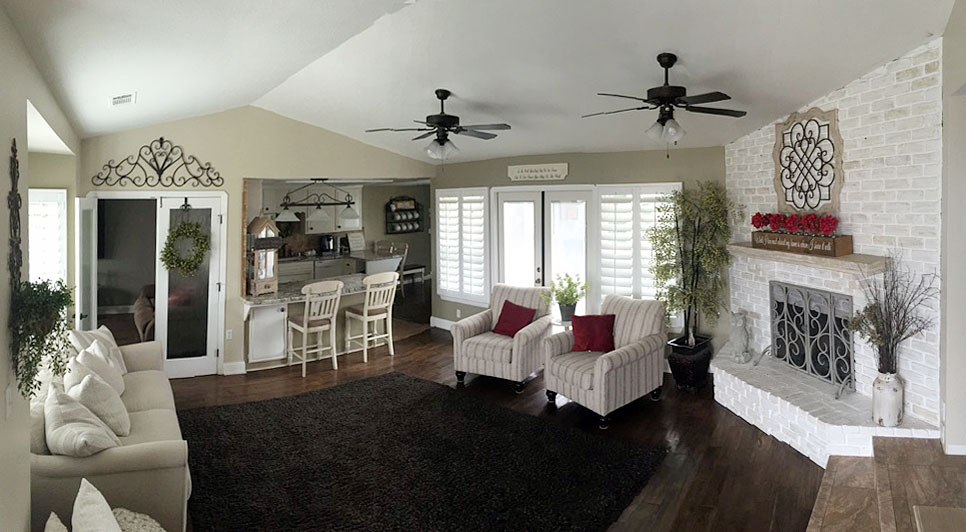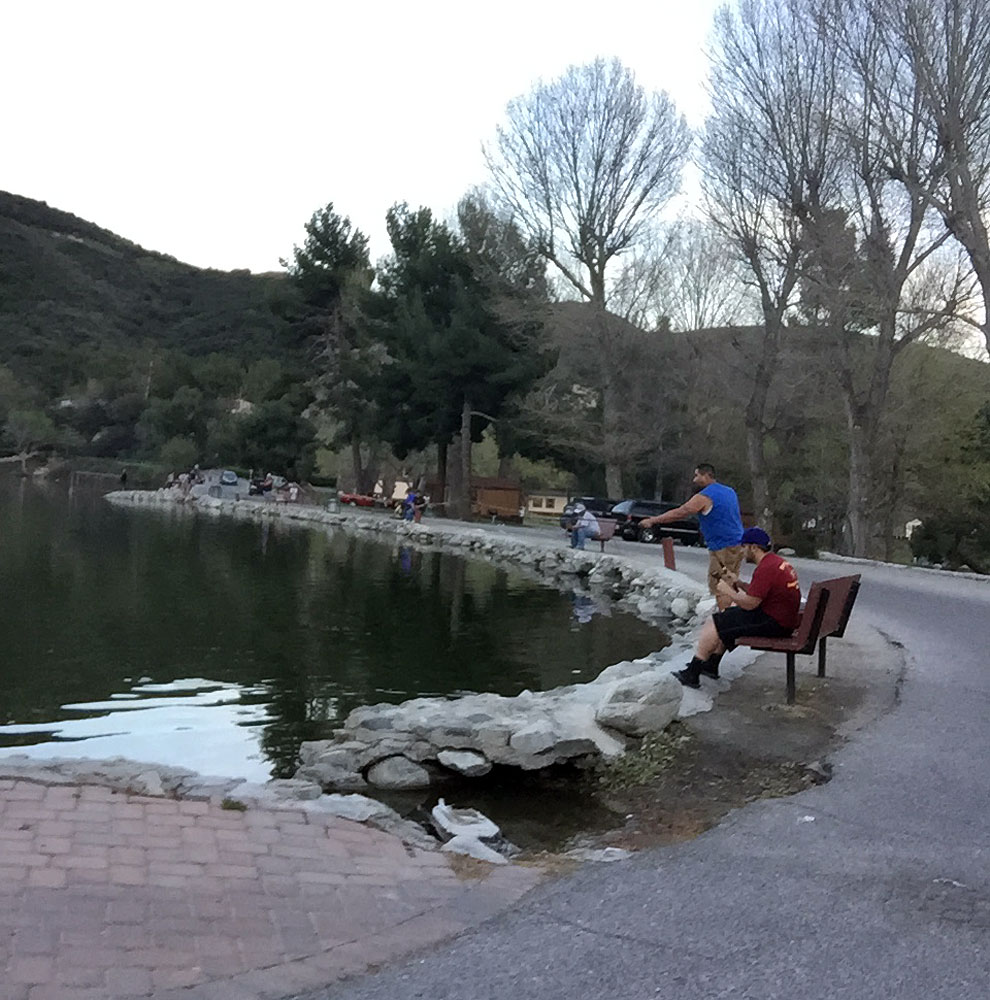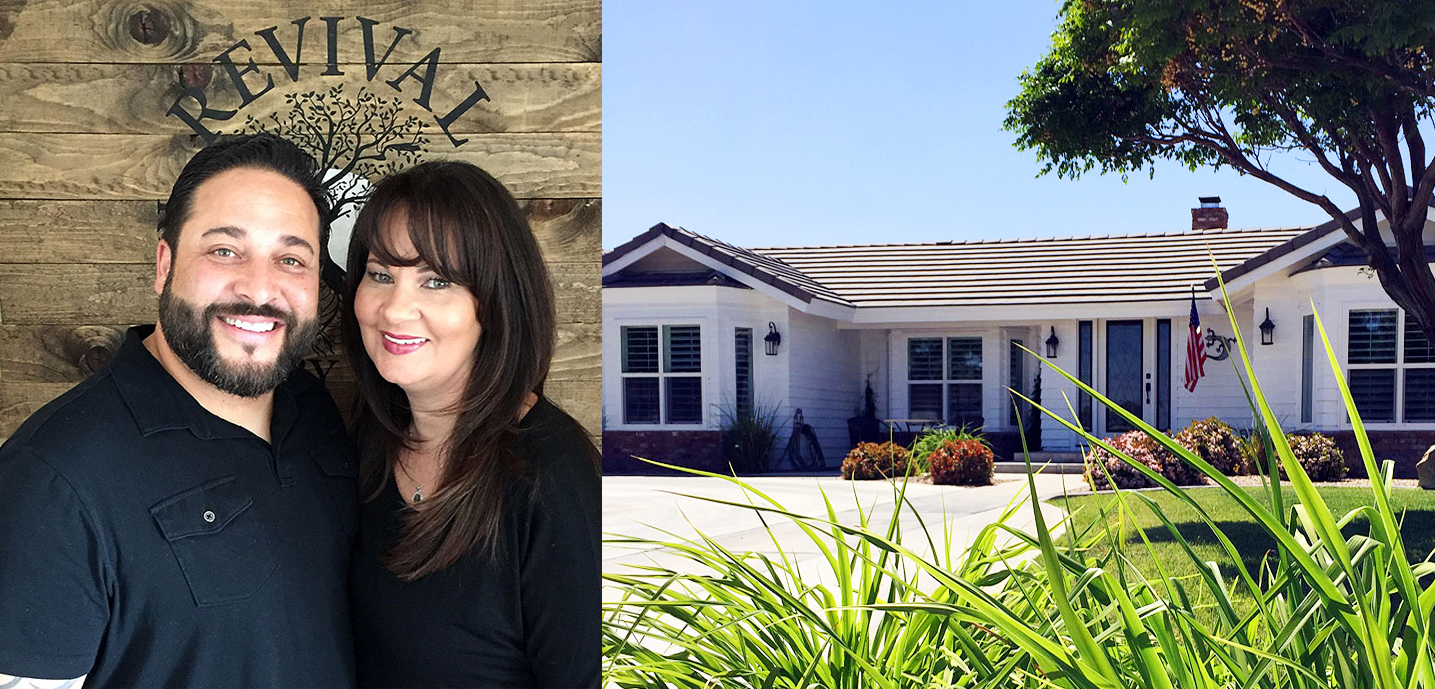VICTORVILLE—What would you do if you realized your steady career was growing to feel increasingly more unfulfilling and you began to question whether you were using the full potential of your life? What if a greater purpose simultaneously presented itself, but committing to it meant a significant change to the structure of your day-to-day unquestioned normality? These were the questions that Ray and Janet Perea faced before they ultimately changed the course of their lives to serve a higher calling and sacrifice their home to help young men struggling with addiction.
In July 2015, Ray and Janet transformed their home and used their life savings to open Revival Recovery Services, a Christian-based non-profit rehabilitation facility dedicated to helping men with drug and alcohol dependency. Prior to their commitment to Revival, Ray worked in the building industry and Janet worked as the vice president of a bank. In an interview with Canyon News, Janet recounted her memories with Ray and how they craved more meaningful interactions in their work. “We were at that point where we questioned where we were in our careers, and whether we could be happy working at our jobs.”
Everything changed when the Pereas attended a Christian conference. A fellow attendee approached Ray and asked him whether he had ever taken part in counseling or served as a counselor, “he believed that Ray had the personality and mentorship to be a great counselor,” recalls Janet. Within six weeks of the conference, everything changed; Ray began volunteering and undergoing certifications. The Pereas gutted their home to remodel their space for patient intakes, and opened their doors to men of all different ages and backgrounds to help them reconnect with their lives and relationships that were put on hold due to their addictions.

The journey they underwent to help these young men was something they never could have imagined. “There were moments where we have asked ourselves, ‘what have we done?’ We’ve given up our homes and our lives for these people we hardly know,” says Janet, “but those moments of questioning are always clear when you see the deliverance and results. I always think to myself after I see their transformation ‘you can have it all, they need our home more than we do.’ Most of these men have never experienced the extension of love and forgiveness our services provide, and we want everyone who walks through our doors to realize there is a good life for them, no matter who they are.”
Ray and Janet provided a detailed walkthrough of what each client will generally expect when they are admitted to Revival. “We only accept six clients at a time,” says Ray. “We want each person to have a personal one-on-one experience, which is why we keep it intimate. We decided to only take male clients initially because I felt more comfortable speaking to men and sharing my testimony on a more personal level,” says Ray. “We are considering expanding to include women in our program in the future, Janet would be great with female patients and is amazing when she talks to the wives or mothers of some of our clients. We are open to the idea of expansion.”
Each morning Revival patients are given the opportunity to reflect upon their lives and recount what they are grateful for. After they make breakfast, they attend fellowship and have their individual counseling sessions. “On a normal day, we’ll do four groups a day, and depending on progress we do a treatment plan and assessment,” says Ray. Outside of the facility, the Pereas focus on reconnecting each person to nature, “a lot of these men can’t remember the last time they enjoyed the outdoors, so we take them on hikes, driving ranges, and treks through the mountains to go camping and have bonfires. We do everything we can to allow them to focus on the life and experiences they can have while being sober.”

According to the Pereas, each client is only initially obligated to staying at Revival for 30 days. “Within the first week, our clients generally regain clear-mindedness, after the first week they begin questioning where they are. By the third week we are able to build a strong foundation of trust to tackle some deeper-rooted issues and get deep into past wounds. It’s generally in that time when the switch goes off and the men can feel the healing happening. We generally discuss an additional time commitment to treatment in the fourth week. Additional time commitments focus on acclimating clients back to real life and adapting to their circumstances.” Although Revival hasn’t been open for very long, we’ve had one patient in particular who has stayed with their facility for nearly five months, “he feels like a son to us now.”
Both Janet and Ray agree this experience has taught them a lot about parenting with their three daughters, particularly with respect to patience and being a good listener. “Talking over someone gets no results,” says Ray, “I’ve learned to really tune in on key words of what people are trying to say. A lot of it is what they’re doing to convey what they are saying.” Janet pointed out “Ray is more emotional, and the girls have been really supportive. I love Ray’s heart, it is so filled with kindness and the desire to help others.” When Canyon News asked them whether this could potentially be a family business, Janet responded “our family does not take part in the counseling. We talk about potentially expanding to family business, and there are key parts [our daughters] could take part in eventually.”
As powerful as this experience has been for Janet and Ray, after opening their doors to those in need, they found out how much of their lives they would sacrifice for the good of helping others. Despite having to remodel their home, invest their entire life savings into this endeavor, and move in with Ray’s mother, the Pereas agree that the most difficult aspect in opening Revival was the unforeseen sacrifice of losing their most cherished friendships.
“The hardest part of this process has been losing our close relationships with our neighbors who were great friends of ours; our kids were friends with theirs, we even took family vacations together,” says Ray. “The community resisted our decision to open the facility, some even had relatives who faced addiction in their own lives. Some of our friends would say to us, ‘I respect what you’re doing; it’s great, it’s needed, we just don’t want it next to us.’
“There is generally a perceived stigma that these addicts are criminals or sex offenders, but it’s simply not true,” says Janet. “I’ve noticed that all of these young men who have struggled with addiction have faced difficult tragedies in their lives, and without having faith to turn to, it is understandable how some of them would end up here. Because we opened our facilities, we’ve faced a lot of judgment,” says Ray. “It puts trauma in my heart when I think about what we’ve lost, but at the end of the day, I remind myself, it’s not about us or them, it’s about these men who have faced abandonment and need somewhere to go to have a group of people who are present for them.”
The Pereas have an open door policy, anyone can come in and ask about our program and receive a tour of their facilities. “We really think a lot of this has to do with the idea that there is fear in the unknown, which is why we agreed to have an open door policy. We’ve actually had some neighbors stop by to ask about our facilities, and every time we have an opportunity to talk to a neighbor about it, they feel better about what we’re doing. One neighbor in particular even decided to come and work with us; another neighbor was a retired war veteran, and at the time we had two veterans being treated. Our neighbor was so moved by what we are doing that he began contributing literature and information about PTSD to our facility.”
Janet and Ray say their patients are under constant supervision and the facility follows all state regulations. “We have drivers that shuttle our patients from one place to another, and we generally do not take our patients to popular parks or common hiking trails around the area. We are very low profile; if Revival was never advertised, no one would know we are here. We are generally one of the quieter houses on the block,” says Janet. Out of respect for their neighbors, the Pereas have decided they will move locations when they become more established. “I know there is a purpose for it, and it is where it’s supposed to be for now. However we are sensitive to our neighbors, and we know in our hearts that we will eventually have to move Revival out of its current location.”
Janet and Ray have been incredibly satisfied and grateful for the humbling journey they have gone through with Revival, however, they hope to be expanding in the near future. When Canyon News asked them what the vision of expanding Revival looks like, Ray and Janet enthusiastically detailed their smaller and larger plans. A turnkey expansion aspect would be to incorporate services for clients who are deaf or hard of hearing.
“We have found that there are many individuals with this special need and are looking for treatment services,” says Ray. “We would like to eventually train our existing counselors to learn American sign-language so they are well-equipped to help patients with special needs.” Janet indicated, “immediate expansion would entail greater publicity and building upon our clientele, we also want to focus on having better transportation services. We’d love to be able to improve transportation and fit everyone into one vehicle.” Revival’s eventual goal is to leave the area and move to a quieter neighborhood with fewer neighbors; “we hope to take 12 instead of only six clients. However, we definitely want to start slow and focus on quality of the treatment we’re providing for now and expand when the time is right.”
Despite the hardships and sacrifices the Pereas have faced, both Ray and Janet know in their hearts they were meant for a greater purpose, and that the experience and life-changing support they are providing for the people that come through their facilities were what they were destined to do with their lives.






